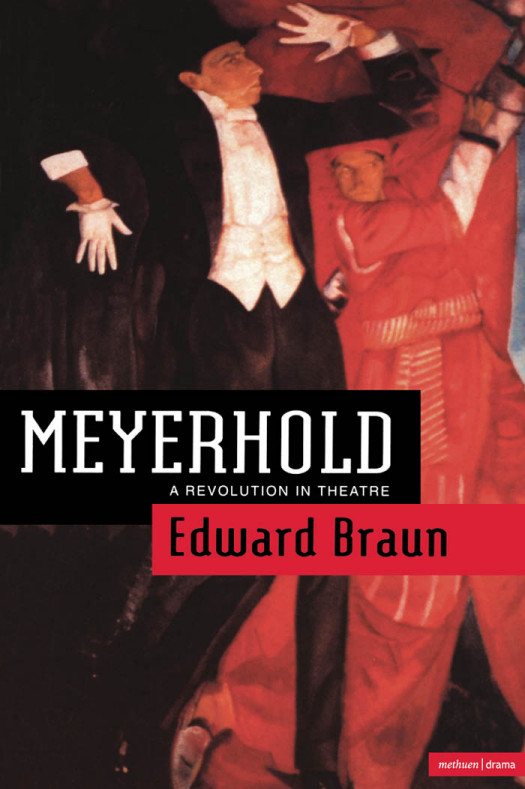Hans-Thies Lehmann: Postdramatic Theatre (1999–) [PL, EN, BR-PT, SK, RO]
Filed under book | Tags: · drama, history of theatre, performance, theatre, theory

“This is a study of the new theatre forms, which has become a key reference point in international discussions of contemporary theatre.
In looking at the developments since the late 1960s, Lehmann considers them in relation to dramatic theory and theatre history, as a response to the emergence of new technologies, and as an historical shift from a text-based culture to a new media age of image and sound.
Engaging with theoreticians of ‘drama’ from Aristotle and Brecht, to Barthes and Schechner, the book analyzes the work of recent experimental theatre practitioners such as Robert Wilson, Tadeusz Kantor, Heiner Müller, the Wooster Group, Needcompany and Societas Raffaello Sanzio.”
First published as Postdramatisches Theater, Verlag der Autoren, Frankfurt am Main, 1999.
English edition
Translated and with an Introduction by Karen Jürs-Munby
Publisher Routledge, London, 2006
x+214 pages
Reviews: Marvin Carlson (Theatre Research International, 2006), Iva Rosanda-Žigo (Fluminensia, 2006, CR), Denise Varney (Performance Paradigm, 2007), Elinor Fuchs (TDR, 2008), Jeanne Wilcoxon (Theatre Topics, 2008).
Teatr postdramatyczny (Polish, trans. Dorota Sajewska & Małgorzata Sugiera, 2004, pp 1-99, 41 MB)
Postdramatic Theatre (English, trans. Karen Jürs-Munby, 2006)
Teatro pós-dramático (BR-Portuguese, trans. Pedro Süssekind, 2007, 38 MB, via)
Postdramatické divadlo (Slovak, trans. Anna Grusková & Elena Diamantová, 2007, 16 MB, via)
Teatrul postdramatic (Romanian, trans. Victor Scoradeţ, 2009)
Edward Braun: Meyerhold: A Revolution in Theatre (1979/1995)
Filed under book | Tags: · art, biography, biomechanics, constructivism, epic theatre, history of theatre, proletkult, revolution, symbolism, theatre

“Legendary Russian theater director Vsevolod Meyerhold (1874-1940) led the revolt against naturalism and flouted Stalinist socialist realism with his avant-garde productions incorporating mime, constructivist sets, musical scores and formalized scenery. His scenic invention and use of cinematic techniques culminated in his 1926 staging of Gogol’s The Government Inspector as well as reinterpretations of classics such as Pushkin’s Queen of Spades. Braun, a drama professor in England, sees Meyerhold as a supreme director-poet for whom the theater was designed to shatter the audience’s complacency. Decked out with 145 photographs of set reproductions, costumes and posters, Braun’s vibrant study restores Meyerhold’s radical legacy for contemporary theater. This revision of a work first published in 1979 draws on a wealth of newly discovered writings by Meyerhold, as well as KGB files released since 1989 that tell the full story of the director’s arrest, torture and execution after being falsely labeled a foreign agent by Stalin.” (Source)
Originally published in 1979
Second, revised and expanded, edition
Publisher Methuen Drama, 1995
ISBN 0413727300
347 pages
Reviews: Sharon Marie Carnicke (Modern Drama, 1996), Christine Kiebuzinska (Theatre Journal, 1996), Phil Shannon (Green Left Weekly, 1999).
PDF (33 MB)
Comment (0)Martin Esslin: The Theatre of the Absurd (1961–)
Filed under book | Tags: · absurd, history of theatre, language, theatre

“In 1953 Samuel Beckett’s Waiting for Godot premiered at a tiny avant-garde theatre in Paris; within five years, it had been translated into more than twenty languages and seen by more than a million spectators. Its startling popularity marked the emergence of a new type of theatre whose proponents – Beckett, Adamov, Ionesco, Genet, Pinter, and others – shattered dramatic conventions and paid scant attention to psychological realism, while highlighting their characters’ inability to understand one another. In 1961, Martin Esslin gave a name to the phenomenon in his ground-breaking study of these playwrights who dramatized the absurdity at the core of the human condition.
Over five decades after its initial publication, Esslin’s landmark book has lost none of its freshness. Authoritative, engaging, and eminently readable, The Theatre of the Absurd is nothing short of a classic: vital reading for anyone with an interest in the theatre.”
First published by Anchor Books, 1961
Second edition first published by Pelican Books, 1968
Third edition first published by Pelican Books, 1980
Review (Lionel Abel, Partisan Review, Summer 1962, pp 454-459)
Esslin’s article preceding the book (The Tulane Drama Review 4:4, May 1960)
PDF (1961 Anchor Books edition, 20 MB, no OCR, added 2014-5-3)
multiple formats (1972 Pelican Books reprint of the second edition [1968], 463 pp, at Archive.org)
PDF (1991 Penguin Books reprint of the third edition [1980], 480 pp, 58 MB, no OCR)

